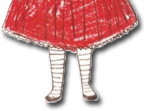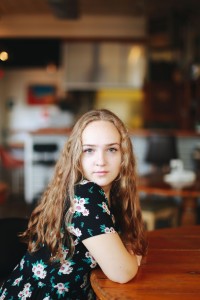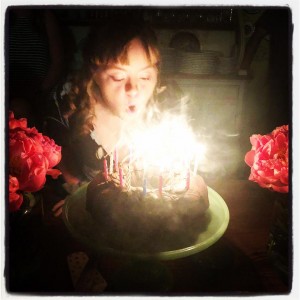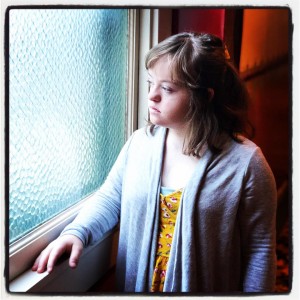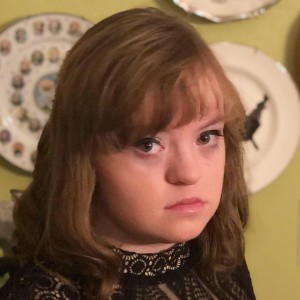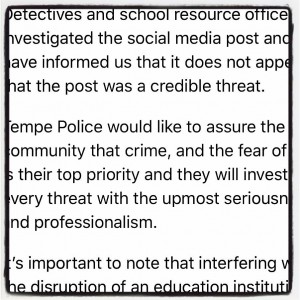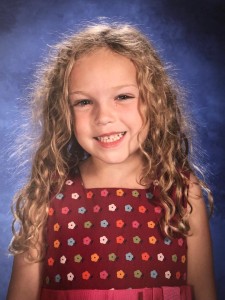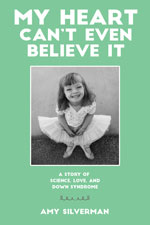
Editor’s Note: I read this essay at the December 20, 2o18 Bar Flies at The Van Buren in Phoenix. The theme: Eating Christmas.
So, here’s the thing no one really ever tells you about Christmas.
It gets harder as you get older.
This occurred to me last week, when my daughter Sophie ran sobbing to her room at the news that we were going to purchase a Christmas tree that evening.
She’s terrified that Santa Claus is going to come into her bedroom.
Whoever came up with
He sees you when you’re sleeping
He knows when you’re awake
Is an asshole.
I looked it up. His name was Haven Gillespie and he wrote the lyrics to the 1934 smash hit, Santa Claus Is Comin’ To Town. Gillespie died in 1975. According to Wikipedia, he drank heavily for most of his life – something I plan to do, at least until New Year’s.
Christmas is hard. I am old.
Sophie’s old, too. For a Santa believer, anyway. She’s 15 and a half. Sophie has Down syndrome, so it takes her longer to figure some things out.
Santa is one of those things. In between bouts of terror, she loves to believe – she writes Santa letters asking about Mrs. Claus, asking how their Thanksgiving was, asking if Santa knows she has Down syndrome.
This year she removed “bras” from her Christmas wish list. “That’s not appropriate to ask Santa for,” she told me solemnly.
She checks several times a day to see if the response to her letter has arrived.
I realize that I’m a shitty parent for not having clued her in, but really, which one of you wants to be the one to break the news to Sophie?
That’s what I thought.
My wise friend Jennifer has it right.
“Christmas is really at its peak when you’re 3 or 4 years old,” she told me. The rest is downhill.
I think that’s true – for most people. Me, I peaked late.
Growing up Jewish, I never got the chance to believe in Santa. My sister and I got blue and white stockings with a pack of Carefree gum in the toe. There was nothing magical about it. Don’t feel sorry for me – I was hardly deprived – but I always longed for the opportunity to really celebrate Christmas.
I finally got my chance at 27, when I started dating my now-husband, Ray.
Ray’s family was not religious. His mother put the kids in Catholic school when they were little, but it didn’t stick, probably because Ray’s father is a devout atheist.
But I think that man loved Christmas more than anyone. Every year on Christmas Day, he pulled out this faded old velvet smoking jacket and put it on over his undershirt and wore it all day. Ray’s family never left the house on Christmas. Everything was beautifully orchestrated, carefully planned over weeks (maybe months), down to the bowl of red and green M&Ms on the plastic poinsettia tablecloth in the modest Tempe tract home the family purchased in the 1970s, shortly after moving here from Queens.
Ray’s father had retired early from the New York City fire department. He loved being a fireman but the smoke inhalation got him. Ray’s mom found a job doing data entry at the Mesa Police Department. They took Ray and his sister on long summer road trips to national parks till the kids were too old. So far, no one had gotten too old for Christmas.
I immediately accepted an invitation to that first Christmas at Ray’s house – and never looked back. His mom puffy-painted my name on a felt stocking that she hung next to the one she’d needlepointed for Ray when he was a baby. Each year I brought her an ornament for the tree, which she would carefully store with the rest and proudly hang the following Christmas.
We’d arrive early on Christmas morning, sit down to coffee and homemade Irish soda bread (one loaf with raisins, the other without, because Ray hates raisins in his Irish soda bread) and enjoy the spectacle of the lit tree and the stacks of gifts, then take turns opening until there was a giant pile of tissue and boxes, just like in the movies!
Ray, his sister and I would watch TV and nap while their parents bustled for hours in the small kitchen. Ray’s dad always made mashed potatoes from scratch, and together they roasted a turkey, microwaved vegetables, and prepared an elaborate family recipe for stuffing that involves boiling sausage and mixing it with loaves of Wonder bread that have been left out for days.
Ray’s mom would swap the plastic tablecloth for a real one and put out her good dishes.
She made the whole thing look effortless. Every year, I would ask her, “How do you do it? How do you make it so every dish is ready at the same time?”
“Practice,” she would tell me, hiding a proud smile. “Years of practice.”
Then she’d slip into the kitchen to make hot tea, serving it with the cookies I’d baked and mentioning that she was hiding one of my pink iced stars to have the next morning with her coffee. As we scooped up piles of gifts to take home, Ray’s dad would sigh, dejected. He hated it when Christmas was over, he’d tell us.
I totally related.
Ray and I got engaged, then married, then we had a baby, then another baby. His mom added stockings by the fireplace, and the mounds of tissue paper grew. But really, nothing about Christmas ever changed, which is exactly the way I liked it.
And then everything changed.
Just after the holidays one year, Ray’s mom began complaining that her throat hurt. She never complained. By spring, the diagnosis was lung cancer. We celebrated one last Christmas in 2008, and by the next February, she was gone.
I wasn’t completely surprised when, the following summer, Christmas arrived on our doorstep in the form of several Rubbermaid bins. Ray’s dad had left nothing out – he included the stockings, the hooked rug tree skirt, every ornament.
Suddenly, Ray and I were the adults. Over the years, we’ve developed some pretty good holiday traditions – every Christmas Eve we take our daughters out to look at lights. We get home late and the girls go to sleep and Ray and I stay up and drink Bailey’s and wrap gifts, shooing poor Sophie away every time she emerges, worried about Santa watching her sleep.
Christmas morning, I serve homemade Irish soda bread (one loaf with raisins, one without) and I always put out a bowl of red and green M&Ms.
It’s all good. Until it’s time to make Christmas dinner.
We have to have poultry because that’s what goes best with the centerpiece of the meal, the stuffing – that family recipe that involves the aging of white bread and the use of pretty much every utensil in the kitchen. It’s become tradition that Ray makes the stuffing, and he attacks the task with equal parts precision and abandon, which means that he’s inconsolable if the bread isn’t quite stale enough, and also that the kitchen walls wind up covered in onion.
Things aren’t as pretty on my side of the kitchen. The first Christmas dinner we hosted, I made a traditional turkey and we didn’t eat till it was past everyone’s bedtime. The next year I made a turkey breast, which dried up like jerky and tasted like sawdust. Cornish game hens were a big pain in the ass (and a little creepy) and the spatchcocked turkey wouldn’t stay in the largest roasting pan I could find. Parts kept popping out of the pan; that turkey looked like a naked lady with her legs splayed.
I’m not much better at sides, and I’ve never attempted mashed potatoes. But Ray’s stuffing is always delicious, a point of pride.
My father in law hasn’t tried it in years. A couple Christmases after my mother in law died, Ray’s dad stopped coming over. He’s got a girlfriend, now, and they always schedule a trip over the holidays. I wish Ray’s dad would partake in our new traditions, if only for his granddaughters. I want to be mad at him, and then I picture my father in law in his velvet smoking jacket, standing in the doorway as we drive away, sad because Christmas is over.
Last year I decided that it doesn’t really matter what I cook for Christmas dinner. I made my grandmother’s Jewish brisket, the only main dish I can prepare with any degree of certainty of success. Everyone raved, but the truth was that it was a little gross, meaty and greasy next to the sausage stuffing. It didn’t feel right. It wasn’t Christmas-y. The truth is, I wasn’t Christmas-y. I’m just an imposter, I thought. What’s the point?
There’s no such thing as Christmas brisket.
“What if we order in Chinese this year?” I asked Ray last month. “You know, ditch Christmas dinner and make things a little easier on ourselves?”
“Okay,” he said. “That sounds good. But I’ll still make the sausage stuffing, right?
“And can you get some of those Cornish game hens?”
Despite Sophie’s protests, Ray went out and bought a tree, and at some point the four of us will honor another tradition – and decorate it. I’ll open the boxes with my mother in law’s ornaments – delicate glass balls, the popsicle figures Ray made in grade school, the snapshot of his family dog sitting on Santa’s lap and several tiny framed pictures of our girls.
My favorite ornament is a Santa carved from wood, painted in bright colors and shaped like a star. On the side, in my mother in law’s handwriting, it says “Amy, 1995.”
Tonight I’ll stop at the grocery store on my way home and buy the Wonder bread – so there’s plenty of time for it to get good and stale before Christmas. And I’ll see if the butcher has Cornish game hens. I might even try to make mashed potatoes.
We can order Chinese another night.


